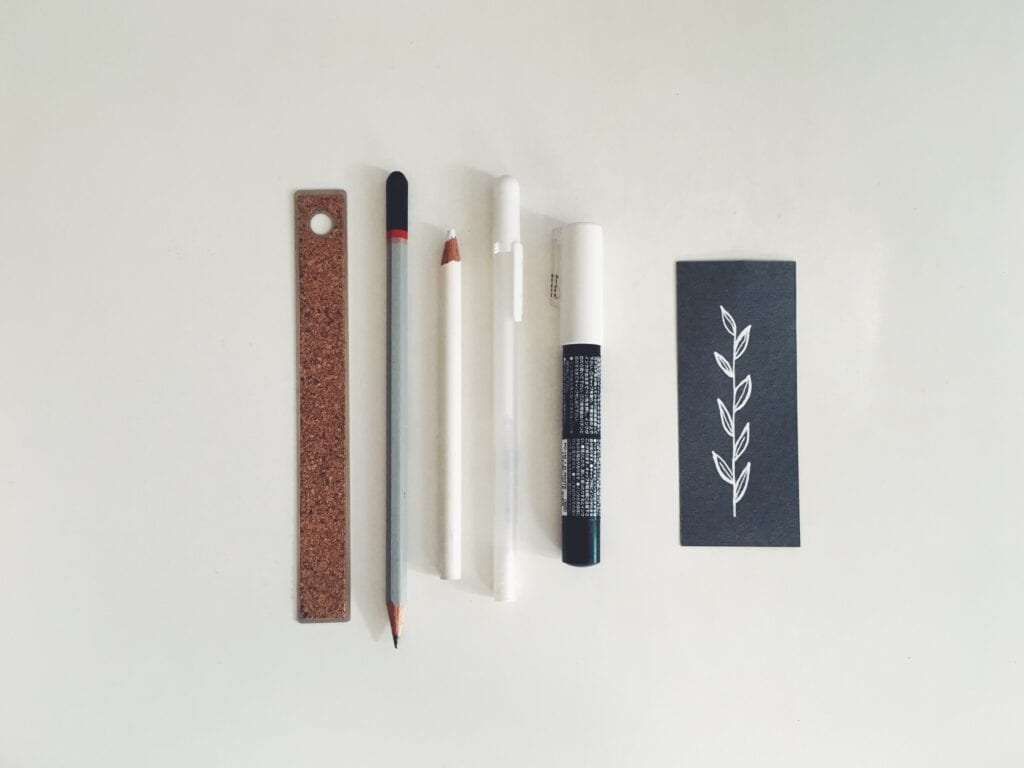The night before your VCE English exam are some of the most nerve-racking hours you might experience — but, you’re not alone in feeling this!
Here are 5 steps to make sure you show up to your exam ready to show all the hard work that you’ve done throughout the year.
Let’s go through the steps!
Step #1: Read, Don’t Write
Step #2: Plan Your Approach
Step #3: Be Organised
Step #4: Take a Break
Step #5: Sleep and Eat Well
Step #1: Read, Don’t Write
When it comes to English exam preparation throughout the year, you have most likely been writing practice essays one after the other. The night before the exam is when you can truly put an end to this.
Trying to write out a full essay will mean that your entire focus is only on that specific topic, but the truth is you don’t know what topic will come on exam day.
So rather than writing, go back and skim through the essays to jog your memory. Use resources that you have already written to remind yourself of the ideas and links you have made in the past.
As you look back and read all the work you have done, you’ll also build confidence as you reflect on your efforts.
The key point of Step #1 is to make sure all your ideas are at the forefront of your memory during the exam!
Here is a checklist of the resources you should go over:
- Quote Bank
- Essay Plans
- Character Analysis
- Summary of Themes
- Practise Essays
Step #2: Plan Your Approach
As you should probably know, the VCE English Exam is 3 hours and 15 minutes long — you’ll have to complete three separate essays in that time.
This leaves you with little time to organise your plan of attack during exam time. So, plan beforehand!
This will also help relieve your nerves as you have more of a grip on what you will do on exam day.
Here is an example of an approach you could take, but you can always make your own!
| Reading Time | Writing Time |
|---|---|
Brush up on your knowledge of the Framework of Ideas section of the exam!
Step #3: Be Organised
Whilst the night before your VCE English exam is stressful, the morning of the exam can also be equally frantic. What we mean by this is that it’s best to prepare your bag the night before.
Look through the authorised materials and equipment list on the VCAA site and prepare the things that you need.
Tip #1: Write With a Pen
Pens are usually a better option compared to pencils when writing essays as pencils often don’t show up as clearly as writing with pens. This helps examiners read your essay more easily and prevents them from having to waste time trying to decipher what you have written.
If you want to be more specific, using pens with a comfortable grip and smooth ink will help you write faster (it doesn’t need to be expensive — for example, the Uni Jetstream)!
Tip #2: Have Spares on You
Take at least 2 pens and pencils.
You can never rely on one to last you the whole exam so it is important to always have a back up, as you don’t want to waste your exam time asking the supervisors for stationery.
Tip #3: Bring Something to Colour-Code
Highlighters or coloured pens are often useful for annotating your article for argument analysis in Section C.
Tip #4: Bring a Dictionary!
Don’t forget your dictionary! A lot of students seem to undermine the use of the dictionary, whether you think you will end up using it or not just take it. The worst outcome is you have a key word in a topic that you have never heard and don’t have a dictionary to look it up.
Remember that VCAA will only allow transparent pencil cases, a good alternative is a zip-lock sandwich bag. It is also good to bring a drink bottle as you are likely to get dehydrated during the long three hour exam. Remember, this also needs to be transparent with no labelling.
Tip #5: Write up a Checklist
Here a list of the typical items required for an English Exam:
- Pens
- Pencils
- Highlighters
- Erasers
- Sharpeners
- Rules
- English printed dictionary
Step #4: Take a Break
As much as a little revision on the night before your exam can help, cramming at the last minute has little to no effect on your performance the following day.
Instead, have a break doing something that you love like watching an episode of your favourite TV show, reading a book or just listening to some music. Dance around your room if you have to!
This can often calm your nerves and allow you to come to terms with the fact that you have done sufficient preparation and put it all into effect in the actual exam.
Step #5: Sleep and Eat Well
We’ve heard it time and time again, but a good night’s sleep is imperative for your exam performance!
If you want to wake up refreshed and ready to take on the long exam awaiting you, aim to get 8-10 hours of sleep!
Tip: When your nerves keep you awake, it sometimes easier said than done. In this case, try and do some activities that usually get you sleepy, this could be reading, meditating or playing some music.
Once you wake up, make sure to start your day right with a good hearty breakfast to boost your energy and brainpower during the exam!
And That’s How To Prepare For Your VCE English Exam!
Check out more of our VCE English resources here:
- The Comprehensive Guide to Acing Your VCE English Oral Presentation
- The Definitive Guide to Understanding VCE English SAC Text Responses
- How to Ace Your End of Year VCE English Exams
- How to Write a VCE Argument Analysis for English
- VCE English Past Papers Master List
- All Past VCE Papers In One Place for Your Study
Are you looking for some extra help with preparing for your VCE English exam?
We have an incredible team of VCE tutors and mentors!
We can help you master the VCE English study design and ace your upcoming VCE assessments with personalised lessons conducted one-on-one in your home or online! If you’re looking for a VCE English tutor in Melbourne, we can help you out.
We’ve supported over 8,000 students over the last 11 years, and on average our students score mark improvements of over 20%!
We tutor across the wider Melbourne area. Check out our local Footscray tutoring today! Or our VCE tutors in Doncaster stationed across the suburb!
To find out more and get started with an inspirational VCE tutor and mentor, get in touch today or give us a ring on 1300 267 888!
Abhisha Vaheesan completed her VCE in 2021 and is currently an undergraduate student studying Bachelor of Radiography and Medical Imaging (Honours) at Monash University. As much as she is invested in Biology and putting together the building blocks of life, she is equally immersed in debating the conflicts of modern literature. Aside from this, she loves listening to music, is an avid writer and K-drama fanatic.





